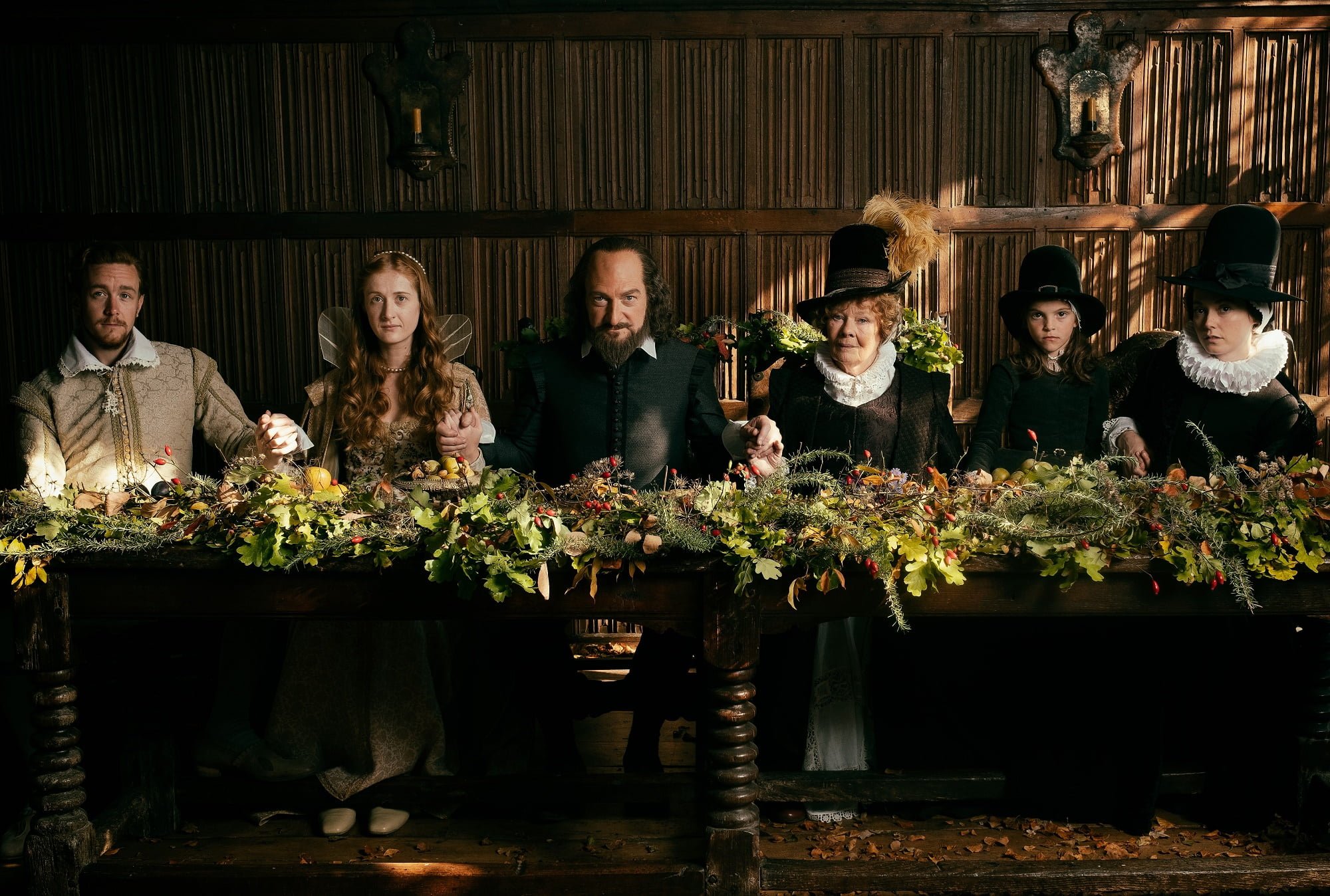All is True finds its director and star Kenneth Branagh channelling his love of all things Shakespearean into a refined, but unpretentious sort of passion project. A film about The Bard’s tumultuous family life in the months and days leading up to his death in 1616 – several years after The Globe Theatre burnt down and he all but retired from writing – All is True is a multilayered and disarmingly modest story. It’s less about iconography and more concerned with portraying Shakespeare as an everyman who would rather be gardening than answering questions about his accomplishments or dodging accusations hurled towards his dysfunctional family. It might seem like a minor project from Branagh given his tendency towards proper, prestigious theatre and Hollywood blockbusters, but All is True (which cheekily plays fast and loose with history and factual accuracy) has a welcome amount of charm.
There’s not much of a plot to speak of in All is True, but rather a series of moments from the twilight years of Shakespeare’s life. The once lauded playwright, portrayed on screen by Branagh, has no desire to return to the theatre, and instead spends most of his days constructing a garden in memoriam of his dead son, Hamnet. He lives with his older wife (Judi Dench) and unmarried, spinster daughter, Judith (Kathryn Wilder), while his other daughter, Susannah (Lydia Wilson), is stuck in a loveless Puritan marriage. Whenever he has to go into town, Shakespeare is constantly derided for any number of things: not going to church enough, not being a part of the working class, not having his other daughter married off, the poor decisions made by his father that tarnished the family name. It’s easy to see why Shakespeare rarely left his homestead in later years, and All is True isn’t about being a historically accurate as possible, but rather about building sympathy for an aging man who just wants to enjoy his final days.
All is True, written by stage, television, and film veteran Ben Elton, has the appearance and cadence of a bunch of actors and friends getting together on a weekend and putting on a show. The production design alone is more impressive than that description makes it sound, but even at its most dramatic, All is True marks a change of pace for Branagh. There’s a considerable sadness that hangs over the material – particularly when it comes to Judith and Shakespeare’s grieving over the loss of young Hamnet – but also a wealth of positivity and effortless grace. Shakespeare might be a grumpy old man in All is True (something definitely emphasized by the heavy prosthetics on Branagh’s face), but it isn’t a sour, downtrodden sort of film that the material might suggest. Only at the end do things turn serious, and by that point, Branagh has earned enough good will with the film’s story and the performances to take things in a new direction.

It’s also not exclusively about Shakespeare, with the story often ceding control to Judith and Susannah’s romantic and social problems for lengthy passages. It isn’t always seamlessly integrated with Shakespeare’s character arc, but All is True does offer some insight about what it was like to be a woman in the 1600s from two vastly different points of view. In many respects, the film belongs just as much to Wilder and Wilson as it does to Branagh, even if it is a shame that acting heavyweights Dench and Ian McKellen (who pops up for a single, lengthy sequence as a Duke who’s come to coax William back into writing and directing) get lost in the film’s emotional shuffle.
I also have to admit that I’ve never been a big fan of Branagh’s visual style of film direction. His use of negative space, extremely canted framing, low angle shots, and sometimes overly rapid editing during conversations has always rubbed me the wrong way, and that adherence to his own unique cinematic form doesn’t change in All is True. Branagh’s style – even when making something as inherently lacking in panache as this – always distracts and never enhances his material. He understands actors, pacing, set designing, and fostering an emotional connection with audiences brilliantly, but visually he has never progressed beyond his bag of elementary tricks, no matter how big a budget he has been working with. His style only ever worked once (on his epic, uncut mounting of Hamlet, which wasn’t much more than a go-for-broke stage play on a large canvas), and he continues to struggle when it comes to the more technical aspects of filmmaking
Thankfully, All is True isn’t a film designed to draw undue attention to itself. It’s meant to offer gentle insight and to entertain. It has a handful of excellent scenes and no bad ones. The performances are uniformly exceptional across the board, and the changes made to Shakespeare’s life will only rankle the most pedantic of viewers. All is True is as laid back and approachable as historical costume fiction tends to get.
All is True opens at Varsity Cinemas in Toronto and Fifth Avenue Cinemas in Vancouver on Friday, May 24, 2019. It expands to Montreal on June 7 and to additional Canadian cities throughout the summer.
Check out the trailer for All is True:
Join our list
Subscribe to our mailing list and get weekly updates on our latest contests, interviews, and reviews.

